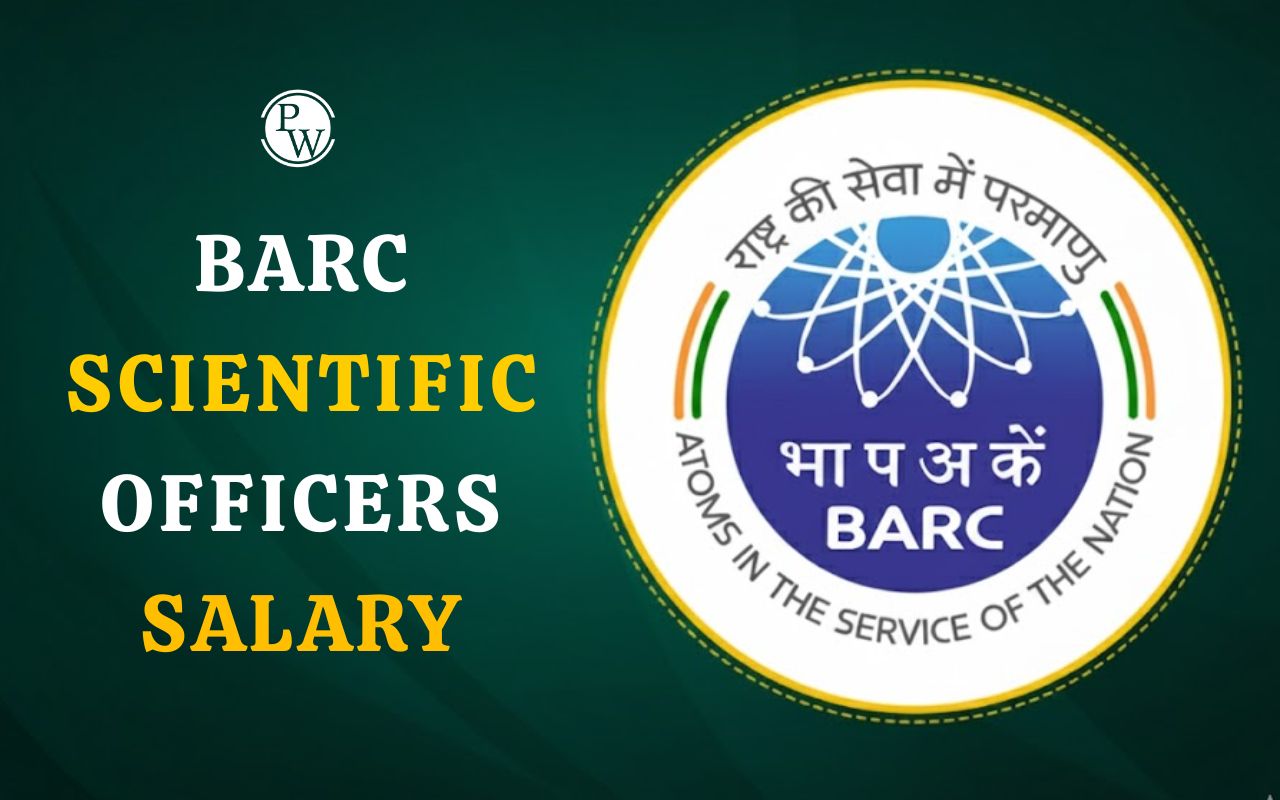
Instrumentation Engineering Scope- The study of charge flow measurement in automated systems and associated controls is the focus of the branch of engineering known as instrumentation engineering. Instrumentation Engineering students are instructed to add sensors to systems that include recorders, transmitters, displays, or control systems.
The goal of the Instrumentation Engineering course is to help students comprehend the design, development, installation, and operation of equipment that is primarily used to monitor automated system controls and machinery. The average fee for Instrumentation Engineering courses ranges from INR 24,000 to INR 4,34,0000. Although Instrumentation Engineering is not widely known in India, the scope of this field is huge and there are numerous job prospects in both public and private sectors. Candidates can pursue profitable and prestigious work prospects in prominent companies in India and abroad after completing Instrumentation Engineering. Candidates can pursue high-profile careers as educators, testing and quality maintenance engineers, automation engineers, instrumentation engineers, and control engineers after completing their studies in the field of engineering. In India, the average salary for an instrumentation engineer is approximately INR 6,00,000.What is Instrumentation Engineering?
Instrumentation engineering is essentially a significant portion of engineering courses that focuses mostly on the concept and function of measuring instruments that are used in a variety of sectors, including robotic system design, electrical domain layout, and instrumentation. The design, construction, testing, monitoring, and maintenance of instruments are all included in the Instrumentation Engineering course syllabus. Instrumentation engineers are required to perform primarily domain-oriented duties, which include designing, manufacturing, testing, monitoring, and maintaining equipment. Instrumentation engineers are also needed, and they operate in a variety of industries, including solar, water, and power. Some of the roles and responsibilities of an Instrumentation Engineer are as follows:- Developing and designing control systems
- Preserve existing control systems.
- Control systems management
- Work together with purchasing agents, design engineers, and other employees who are involved in the production processes.
- Manage projects within the constraints of cost and time
- Troubleshoot
- Ensure that the devices adhere to health and safety regulations.
- Maintain quality standards.
- Provide consulting assistance
Instrumentation Engineering Scope
After completing Instrumentation Engineering, there are a plethora of options available, including high-profile jobs with competitive pay. Though it is not as well-known in India, candidates in instrumentation engineering can find many profitable jobs in both public and private sectors. The average yearly salary for an instrumentation engineer is INR 6,00,000, and it increases with experience. After earning their degree in Instrumentation Engineering, candidates can work in prestigious and well-paying positions with prestigious Indian companies like Larsen & Toubro, BHEL, ISRO, GAIL, TCS, and many more. Candidates who have completed their BTech in Instrumentation Engineering can continue their studies and pursue Masters degrees such as MTech in Instrumentation Engineering, MBA, or they can study for competitive exams such as UPSC, SSC, and so on. Instrumentation engineers are needed in numerous industries today, including design, development, testing, monitoring, automation, production, quality control, and maintenance. Thus, it is clear that there is a great demand for instrumentation experts and that they will have a prosperous career ahead of them. The following are some career scopes for instrumentation engineers:|
Instrumentation Engineering Scope |
|
| Job Profile | Description |
| Instrumentation and Control Engineer | The machinery, processes, and systems that control engineering are created, developed, installed, managed, and maintained by engineers. |
| Instrumentation Engineer | Connecting sensors to recorders, transmitters, displays, and control systems is a common task for instrument engineers. They could be responsible for all of the system's testing, calibration, and maintenance in addition to wiring and installation specifications. |
| Automation Engineer | Automation engineers modify existing technology to make it less reliant on humans, and they track the outcomes of their improvements. Automation engineers have different duties depending on whether they are dealing with machines or programming, but overall, their obligations are the same. |
| Professor | A professor must be enthusiastic about academics, institutions, and student growth. In addition to ensuring that students have a solid foundation in core subjects, the professor should instruct them in their primary area of expertise. Participating in organizational and academic committees ought to be seen as additional duties. |
| Testing and Quality Maintenance Engineer | Testing, debugging, and developing corrective action plans are the responsibilities of Testing and Quality Maintenance engineers. They examine system requirements in addition to monitoring quality assurance metrics. Resolving system errors at every step of software development is the ultimate goal of quality improvement. |
Instrumentation Engineering Scope in India
The scope of instrumentation is very broad both domestically and globally, and they have an advantage over traditional IT engineers. Graduates from IN programs can find employment in some of the most remarkable sectors, including the automotive, petrochemical, and oil and gas industries. They are capable of performing a wide range of jobs, including project engineer, reliability engineer, and maintenance engineer. As a result, IN engineers have a decent chance of being hired by a reputable company in India, flying abroad for training, or working in a foreign unit. A summary of the leading industry sectors is as follows:|
Instrumentation Engineering Scope in India |
|
| Job Profile | Description |
| Automation | Actuators, positioning tools, and robots created by instrumentation engineers are essential to industrial automation. Temperature, pressure, flow, and other physical parameters are observed and managed by an automation engineer. |
| Engineering Firms | Instrumentation engineers work in engineering organizations and are responsible of creating new instruments as well as improving or modifying outdated equipment used to operate mechanical or electronic systems. |
| Oil, Gas and Petrochemical Industries | Instrumentation engineering is utilized in the oil, gas, and petrochemical sectors to monitor and manage the process plant. Industrial instrumentation engineering is used to control and monitor pipelines, petrochemical plants, oil refineries, and processing facilities. |
| Railway and Construction | Instrumentation engineering plays a major role in railroad traffic signals and crossings. Railway movement monitoring is another application of instrumentation engineering. It will also help the train navigation system. |
| Chemical Industries | Enhancing system productivity, dependability, safety, optimization, and stability in areas with automated processes is the main objective of instrumentation engineers in the chemical industry. |
| Corporate Business | An instrumentation engineer organizes, creates, installs, controls, and manages the machinery required to carry out corporate business processes. |
| Public Sector Companies | In order to accomplish a wide range of tasks, such as project management, project design, purchasing and logistics, development, and maintenance, instrumentation engineers collaborate closely with other professionals. They are typically responsible for the development, integration, and continuous maintenance of instruments used in industrial settings. |
| Space Research | The design, development, installation, management, and maintenance of apparatus for the monitoring and control of mechanical systems, instruments, and operations are the responsibilities of a space research instrumentation engineer. Typically, instrumentation engineers are employed by companies or organizations that produce and install sensors and instruments. They frequently work as scientists, engineers, and researchers. |
Instrumentation Engineering Career Prospects
Following are the career prospects of Instrumentation Engineering-- ONGC, Indian Oil Corporation, HPCL, Reliance Industries Limited, and many more are among the companies that hire graduates with experience in instrumentation engineering. Another prospect is to work in the process automation sector, which produces the required equipment. The design and engineering company is an additional choice for the IN engineers. Among other things, candidates can create air conditioners, power meters, voltmeters, and scales.
- IN engineers are needed in the health care sector to create equipment such as ECG, EEG, MRI, XRAY, and FMG. In addition to providing more opportunities for IN engineers, robotics and machine learning are essential to both large- and small-scale industries.
- There is a huge scope of opportunity for instrumentation engineering in other countries. It is possible to get employment in a variety of industries, such as oil and gas, rigs, cold, mountainous, or hilly terrain, chemical plants, steel factories, and PLC and DSC companies.
- Companies like Honeywells, Siemens, Robert Bosch, Suzlon, and others are always looking for talented instrumentation engineers. The oil and gas industries in Middle Eastern cities like Dubai and Qatar, as well as other nations with refineries, are constantly looking for excellent IN engineers. The USA, Canada, and European Union are the best locations to go since they provide excellent prospects for professional advancement for engineers.
- An instrumentation engineer with the necessary qualifications can choose to work in industries such as automation, manufacturing, packaging, machinery, control systems, railroads and construction, and multinational corporations. For freshers, the average income for instrumentation and control engineering in India is INR 6-7 lakh and above.
- You can apply to M. Tech programs, which will eventually lead to more lucrative job opportunities, subject specialization, higher salary packages, and attractive stipends.
- Several PSUs in India hire instrumentation engineers through the GATE examination, which is one of the most interesting career chances for instrumentation engineers. With favourable working conditions, competitive salary and benefits, and more facilities, PSU offers people a bright future. Top PSUs in India like BHEL, HPCL, DRDO, NPCIL, SAIL, BARC, Powergrid, and others hire through GATE.
Scope of Instrumentation Engineering
Devices such as blood glucose monitors, smoke alarms, aircraft sensors, and torque dynamometers are designed by instrumentation engineers.- They might work on security systems or design computed tomography scanners and electrocardiograph equipment.
- Some of the many job options available to instrumentation engineers include the ones listed above, per various reports.
- They are also necessary for the accomplishment of all successful aeronautical research initiatives.
- They work for private engineering corporations, the government, biomedical companies, defense contractors, and manufacturing companies.
Instrumentation Engineering Job Opportunities
Instrumentation engineering has a wide range of scope and career prospects. An instrumentation engineer might specialize in a few different areas. They're listed below:- Design and installation of control systems
- Instrumentation and process control
- Management and installation
- Electronics design and production
- Research and development
- Technical equipment sales and maintenance
- Technology and project management
Instrumentation Engineering Scope and Salary
Candidates can obtain well-paying positions in both the government and private sectors after earning their degree in instrumentation salary. Experienced and skilled applicants typically earn more money than less experienced ones. Lucrative job possibilities are available in prestigious companies like Larsen and Toubro, TCS, BHEL, ISRO, etc. An instrumentation engineer usually earns between INR 6,00,000 and INR 70,000 per year, with compensation increasing with experience and level of expertise. A person working in the public sector benefits from various additional benefits in addition to a higher salary. In India, an instrumentation engineer can expect to earn up to INR 12,00,000. However, a candidate's pay differs based on many factors, including experience, company, etc. For your reference, the following list represents the average salary of an instrumentation engineer based on several factors: According to Job Profile - Depending on their areas of interest and experience, candidates with a degree in Instrumentation Engineering can work in a variety of prestigious positions after graduation. The following table lists some of the most common job profiles along with their average salary:|
Instrumentation Engineering Salary based on Job Profile |
|
| Job Profiles | Average Annual Salary |
| Instrumentation Engineer | INR 4,16,000 |
| Instrumentation and Control Engineer | INR 8,80,000 |
| Automation Engineer | INR 4,61,000 |
| Testing and Quality Maintenance Engineer | INR 3,87,000 |
| Professor | INR 10,00,000 |
|
Instrumentation Engineering Salary based on Experience |
|
| Years of Experience | Average Annual Salary |
| 0 - 2 years | INR 3,14,000 |
| 2 - 5 years | INR 3,48,000 |
| 5 - 10 years | INR 5,63,000 |
| 10 - 15 years | INR 9,96,000 |
| 15 years and above | INR 10,00,000 |
|
Instrumentation Engineering Salary in India |
|
| Company Name | Average Annual Salary |
| BHEL | INR 12,00,000 |
| Phillips | INR 4,48,294 |
| L&T | INR 6,20,000 |
| Reliance Industries Limited | INR 6,71,000 |
| Biocon | INR 4,69,000 |
| Honeywell Automation India Limited | INR 8,00,000 |
| Electronics Corporation of India | INR 4,35,252 |
Instrumentation Engineering Scope in Government Sector
A career in the government sector guarantees stability, a good income, and, most importantly, job security. Since Indian Engineering Services offers benefits that are almost identical to those of Instrumentation Servants and IAS officers, it is one of the most sought-after careers. Salary ranges for instrumentation engineers working for the government range from INR 45000 to INR 50000 annually. I Furthermore, one of the finest ways to safeguard your life and career is to enroll in a PSU. Reputable PSUs like HPCL, GAIL, Powergrid, OIL India, SAIL, and others employ instrumentation engineers to fulfill their needs at different parts of the country. Some PSUs have a direct selection procedure, although the majority of PSUs base their hiring decisions on GATE results. The National Highway Authority of India, Indian Oil Corporation, Delhi State Industrial Development Corporation, Public Works Department, Central Public Works Department, Border Roads Organization, Military Engineering Services, Airport Authority of India, Indian Air Force, Railways, National Hydro-electric Power Corporation, National Thermal Power Corporation, Defence Research and Development Organization, and an extensive list of other organizations are some of the industries that employ instrumentation engineers.Instrumentation Engineering Scope in Private Sector
Instrumentation engineers are also in high demand in the private sector. There is a high need in the private sector for an instrumentation engineer with strong operations and machinery control skills. In the private sector, instrumentation engineers often earn between INR 3,00,000 and INR 4,00,000. Top employers seeking to hire instrumentation engineers include Gammon India, Shapoorji Pallonji, Reliance Infrastructure, and Tata Motors. As a result, the development and economics of the country are greatly influenced by the work of instrumentation engineers. Because of the progressive nature of this country, an instrumentation engineer will always have an advantage over other engineering specialties.Instrumentation Engineering Scope and Top Recruiters
In India, instrumentation engineering is an underutilised and extremely promising field of engineering since only exceptionally intelligent and talented people are able to complete the degree. In actuality, job opportunities for individuals are higher the more funnel out. The Electrical, Mechanical, and Electronics industries offer some fantastic career prospects and incentives to those with a degree in instrumentation engineering. Furthermore, an instrumentation engineer is not limited to employment in the industry. There are many different job descriptions for instrumentation engineers, and they can excel in their career by becoming very knowledgeable about instruments or by specializing in a particular area. One can also work as a chartered engineer or an incorporated engineer, depending on their qualifications. Some of the sectors are given below-- Corporate business
- Public Sector companies
- Manufacturing & Construction
- Consultancies
- Pharmaceutical
- Automation
- Railways and Construction
- MNCs
- IT
- General Management
- Finance
- Oil & GATE And Petrochemical Industries
- Chemical Factories
- Purchasing & Sales
- Marketing
|
Instrumentation Engineering Top Recruiters |
||
| TATA Consultancy Service | Reliance Industries Limited | Larsen & Toubro |
| BHEL | Whirlybird | Suzlon |
| HCL | Texas Instruments | GAIL |
| Invensys | ESSAR | Invensys |
| IOCL | Robert Bosch | ISRO |
Instrumentation Engineering Scope FAQs
Is there a scope for instrumentation engineering?
After graduation in Instrumentation Engineering, one can find profitable employment in canneries, food processing facilities, chemical plants, petroleum refineries, and even in business.
Is there a high demand for instrumentation Engineering?
An extensive range of industries, including manufacturing, petrochemicals, pharmaceuticals, energy, and others, are in high demand for instrumentation engineers due to the crucial nature of precision control and measurement in ensuring safe and efficient operations.
Is it possible for an instrumentation engineer to apply for UPSC?
Yes, You may apply for IAS, of course. Furthermore, in order to write on the IES exam, you must select the subjects of electronics and communication. There will be subjects that differ, so you will need to put in more work in those areas.
Talk to a counsellorHave doubts? Our support team will be happy to assist you!

Free Learning Resources
PW Books
Notes (Class 10-12)
PW Study Materials
Notes (Class 6-9)
Ncert Solutions
Govt Exams
Class 6th to 12th Online Courses
Govt Job Exams Courses
UPSC Coaching
Defence Exam Coaching
Gate Exam Coaching
Other Exams
Know about Physics Wallah
Physics Wallah is an Indian edtech platform that provides accessible & comprehensive learning experiences to students from Class 6th to postgraduate level. We also provide extensive NCERT solutions, sample paper, NEET, JEE Mains, BITSAT previous year papers & more such resources to students. Physics Wallah also caters to over 3.5 million registered students and over 78 lakh+ Youtube subscribers with 4.8 rating on its app.
We Stand Out because
We provide students with intensive courses with India’s qualified & experienced faculties & mentors. PW strives to make the learning experience comprehensive and accessible for students of all sections of society. We believe in empowering every single student who couldn't dream of a good career in engineering and medical field earlier.
Our Key Focus Areas
Physics Wallah's main focus is to make the learning experience as economical as possible for all students. With our affordable courses like Lakshya, Udaan and Arjuna and many others, we have been able to provide a platform for lakhs of aspirants. From providing Chemistry, Maths, Physics formula to giving e-books of eminent authors like RD Sharma, RS Aggarwal and Lakhmir Singh, PW focuses on every single student's need for preparation.
What Makes Us Different
Physics Wallah strives to develop a comprehensive pedagogical structure for students, where they get a state-of-the-art learning experience with study material and resources. Apart from catering students preparing for JEE Mains and NEET, PW also provides study material for each state board like Uttar Pradesh, Bihar, and others
Copyright © 2025 Physicswallah Limited All rights reserved.
Get App









